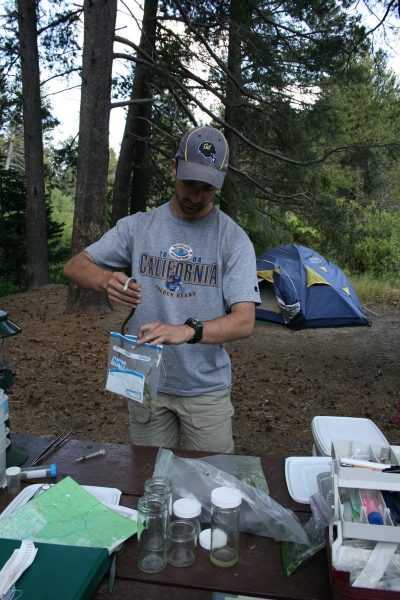MVZ researchers are generally responsible for obtaining their own scientific collecting permits from state, federal, or foreign agencies. However, MVZ Curators may have permits from California and/or the U.S. Fish and Wildlife Service that cover multiple researchers, so anyone planning field work should first consult with a Curator about permits. Anyone with their own permit is responsible for submitting accurate reports to the permitting agency of specimens taken, if required by the permit. Copies of all permits must be given to Staff Curators at the time that specimen material is deposited for cataloguing.
Usually, either a scientific collecting permit or a license (hunting/fishing) is required by states for collection of specimens. Collection of protected species follows stricter state permit requirements than non-regulated species. State permit regulations vary from state-to-state, so always check with the state wildlife agency for the most current regulations.

Useful links to state agencies are:
- California Scientific Collecting Permits
- State and Territorial Fish and Wildlife Offices
- Wildlife, Fish & Game, Natural Resources Offices (includes Canadian agencies)
- Levell, J. P. (1997). A Field Guide to Reptiles and the Law . Lanesboro, MN: Serpents Tale Natural History Book Distributors.
U.S. Fish and Wildlife Service permits are required for collection of all birds protected by the U.S. Migratory Bird Treaty Act (all North American birds except House Sparrow, Rock Dove, and European Starling). USFWS permits also are required for collection of other regulated wildlife, i.e., federally threatened or endangered species (Endangered Species Act), marine mammals, CITES-listed species, and “injurious wildlife.”
International permit regulations for scientific collecting vary from country to country. To find out about permits for individual countries, contact the U.S. Department of State to get the State Department phone number and the U.S. embassy contact information for that country.
Additional permit information is posted on the web site of the Society for the Preservation of Natural History Collections . Another excellent source of information is the Ornithological Council’s Birdnet website that includes guides, resources and the latest news relating to several permitting processes — much of which can be applied to all vertebrates.
When applying for a collecting permit, it is important to provide sufficient lead time for processing by the relevant agency. It is not unusual for a permit to take at least 6 months, so plan ahead!
